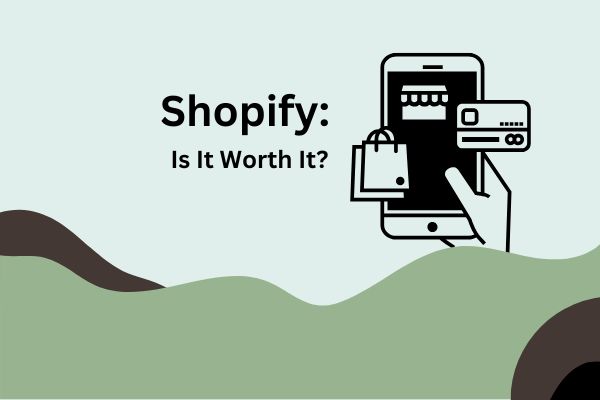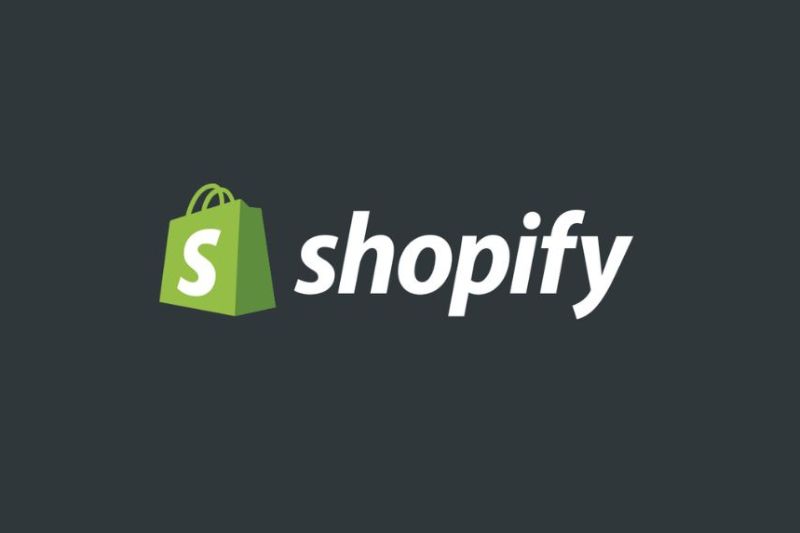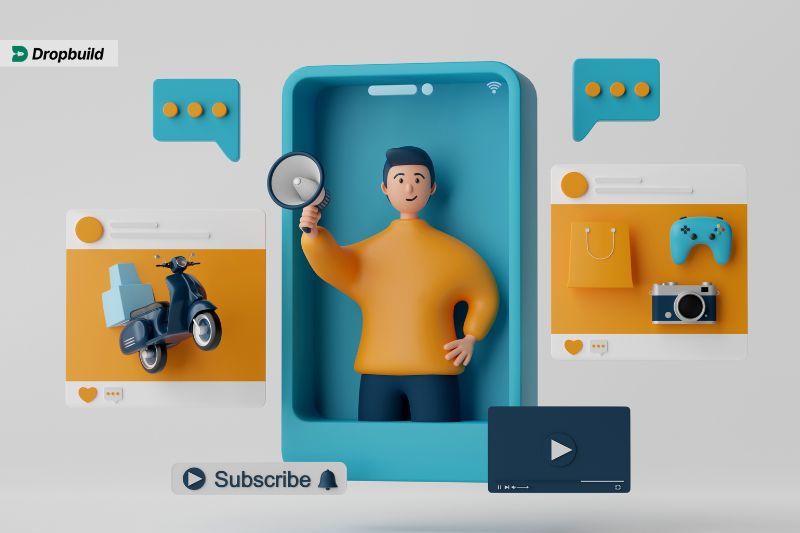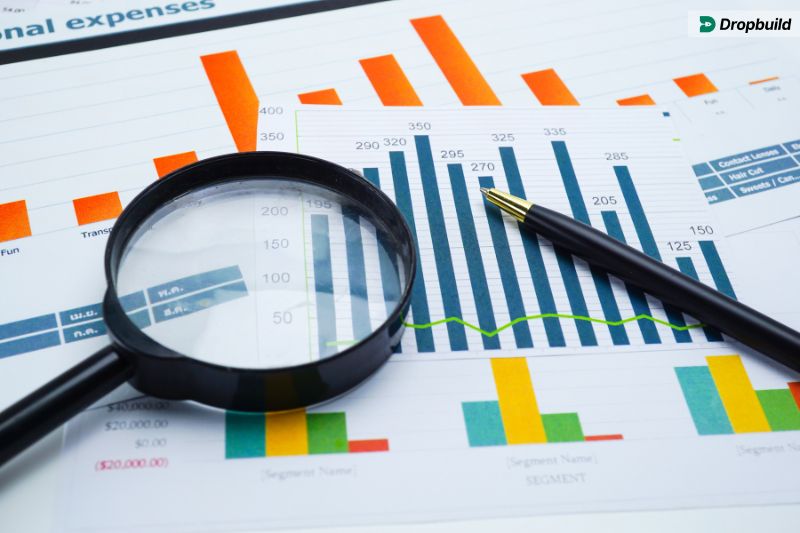Is Shopify Worth It?

This is such a great question and should be asked by anyone seriously considering entering the ecommerce business. With so many platforms offering similar products and services, it can take a while to work through all of them and make a decision. But who has time for that right now? 2026 is here, and you need to get your business going. So, we’ve done the hard work for you and below you can read the results of that work. Let’s go.
The Starting Point
Evaluating software can be a bit of a hit-and-miss process if you don't have a list of criteria to evaluate. There are a number of questions you need answers to if you want to match the right software with your business needs.
- Are there enough plans that allow me to test the product and scale my business as I grow?
- Are these plans good value for money vs. the features they offer?
- Are the features relevant to my business?
- How much of my business will be automated by these features?
- How easy will the platform be to set up and customize to my needs?
- Will I be able to integrate with other apps (such as social media) to provide my customers with a unique buying experience?
- Will the platform help me make sales?
- Will I get up-to-date reports and analytics showing me how my business is doing?
- Is the platform safe for financial transactions?
- Will I get technical support anytime I need it?
Using this short list of ten questions to evaluate the ecommerce options you’re considering will help you make an informed decision.
Now let’s do a Shopify review against these criteria.
Shopify Pricing

Shopify offers a variety of plans designed to support the growth of your business. Begin with the Starter or Shopify Basic Plan, and as your sales or needs grow, upgrade to the Advanced Shopify Plan.
A $1 trial plan exists for those wanting to try the features, but it is only open for 30 days. This may not be enough time for you to really understand how your Shopify store can perform. A full list of features and information about payment processing and transaction fees can be found in the article, ‘How Much Does Shopify Take Per Sale?’
Is Buying A Shopify Store Worth It?
That depends. If you’re looking for a platform that provides basic ecommerce tools with blogging and good customization options, as well as a vast (100+) gateway integration, multi-channel selling, and an easy-to-use interface, then Shopify’s plans are competitive in the ecommerce market.
Setup and Customization
One strong feature in favor of Shopify is its ease of use. Store owners with some development experience can easily set up, customize, and launch their online store.
Ease of Use
Even if you’ve never tackled setting up an ecommerce store before, Shopify offers an intuitive design feature that gives you everything you need. Using the Shopify website builder and the Shopify theme store, you can do a very basic store setup within a day, but a more advanced one can take up to two weeks.
Shopify has prioritized a user-friendly interface with simple drag-and-drop configurations, so you don’t need coding experience to make your store look good and function well. The platform has customizable templates, and you can arrange content sections and blocks according to your preferences. Shopify takes you through a 10-step setup guide to get you started, making it a great choice for beginners and pros alike.
There are a number of paid and free Shopify themes you can adapt to your online business and they come with the assurance of regular updates and technical support, which is highly valuable for staying up to date with the latest web standards and ensuring your customers have an optimal shopping experience.
For in-depth customization and users with technical expertise, Shopify’s Liquid template language is ideal because you can tweak every aspect of your store’s functionality. Shopify’s huge app store further enhances your ability to create an award-winning store.
There is also an alternative to doing your own setup. A Shopify Agency like Dropbuild will take your dropshipping store from the planning phase to launch in just 7 days. They include a premium store design, lifetime support, and a host of winning products in their packages, for which they only charge a once-off fee.
Shopify Integrations

Shopify helps you to connect with other services and tools, making it easy to add new features to your store. You can think of your store as a puzzle, with the apps all being part of the bigger picture. Each one adds new functionality that increases the customer experience and satisfaction. An example of this is the Shopify Buy Button for social media, allowing people access to your products from Instagram, Facebook, Pinterest, or X (previously Twitter).
With Shopify Marketplace Connect, you can link your catalog to external marketplaces such as Amazon, Walmart (U.S. only), eBay, and Etsy.
Shopify is Designed to Make Sales
The Shopify platform was dynamically created to help you make more sales month-on-month. The features that directly help you to drive your sales upward are:
- An extensive app ecosystem: The vast array of third-party apps allows you to enhance your stores' functionality, helping customers make easy buying decisions and systematically leading them to checkout.
- Seamless supplier integration: Shopify integrates easily with product-sourcing suppliers such as AliExpress and Spocket, streamlining order fulfillment.
- Automated inventory management: Shopify supports managing inventory across multiple warehouses or fulfillment centers. This feature helps efficiently route orders based on stock availability and location. Shopify provides inventory reports and lets you set up alerts for low stock levels. These insights help to maintain product availability and avoid missed sales opportunities.
- Global reach: Shopify supports multiple currencies and languages, making expanding your market reach easier. This opens up the way for diverse revenue streams.
- Mobile optimization: The number of shoppers using their mobile devices to make online purchases is increasing. To this end, Shopify’s optimization for mobile makes for higher conversion rates.
- Marketing tools: Shopify users can actively promote sales by using built-in marketing tools such as gift cards, coupons, and promotional discounts. It also allows you to run larger campaigns, driving traffic and sales.
How much money can you make with Shopify?
The answer to this question depends on how well you’ve set up your online store. Everything begins with the type of product you are selling, and a niche in-demand product is likely to get a good head start, but you also need an online store geared towards visual appeal and user experience.
According to Craftberry, the average Shopify store generated approximately $67,000 USD in annual revenue. This translates to about $5,583 per month. Cosmetics, electronics, and fashion stores take the top place in revenue earnings.
Shopify SEO
Your ecommerce business must be found by search engines if you want to make sales. That’s the bottom line. Excuse the pun. Shopify is designed with this in mind and achieves this objective as follows:
- It automatically generates sitemaps and robots.txt files to guide search engine crawlers.
- All Shopify themes are responsive, ensuring a mobile-friendly shopping experience.
- Shopify includes SSL (Secure Sockets Layer) certificates for all stores, improving site security and boosting rankings.
- Shopify-hosted stores benefit from fast loading times, which positively impact both SEO rankings and user experience.
- Many themes and apps support adding structured data (schema markup), which helps search engines understand your content better and display rich snippets (e.g., product prices and ratings).
Shopify Reporting and Analytics

The platform provides built-in reports, giving valuable insights into your store’s performance. This helps you make informed and on-time decisions that affect your revenue. The key features are:
Dashboard: A snapshot of your store’s performance, including sales, orders, organic traffic, and inventory.
Sales Reports: Analyse sales data by product, channels, traffic sources, and time periods.
Behavior Reports: These reports track key metrics such as product views, conversion rates, and cart abandonment, helping you understand what is prompting customer action - or inaction.
Marketing Reports: Provide insights into the effectiveness of your marketing campaigns, including metrics like clicks, conversions, and attributed revenue.
Other reports: Inventory reports, profit reports, financial reports and more.
Shopify Security
According to a report by J.P. Morgan, platform payments across the globe amount to $36 trillion in payment volumes. Digital transactions are taking over the world, which calls for increased security on ecommerce platforms. Shopify does a decent job of securing both user information and customer payments.
Shopify is designed to provide transparency and control over personal data, ensuring compliance with global privacy and data protection laws. Shopify Payments, for example, is a PCI-compliant gateway that manages and stores payment data securely. In markets where 3D Secure is required, Shopify automatically prompts customers to provide an additional layer of authentication. Shopify checkout is the world’s highest converting secure checkout.
Is Shopify Worth It?
Yes. In the final analysis of cost vs. benefits, Shopify is worth it for businesses that want a tried and tested e-commerce platform that delivers powerful and customizable tools to help you make sales. Our conclusion stems from our evaluation of Shopify against the ten evaluation criteria mentioned earlier.
If you’re ready to take your business to the next level, Dropbuild can handle the heavy lifting for you. With our expert Shopify setup services, we’ll transform your vision into a fully optimized, high-converting online store in just 7 days. Whether you’re a beginner or an established seller, we provide premium designs, seamless integrations, and lifetime support to help you turn your ideas into cash.
dropshipping business?





